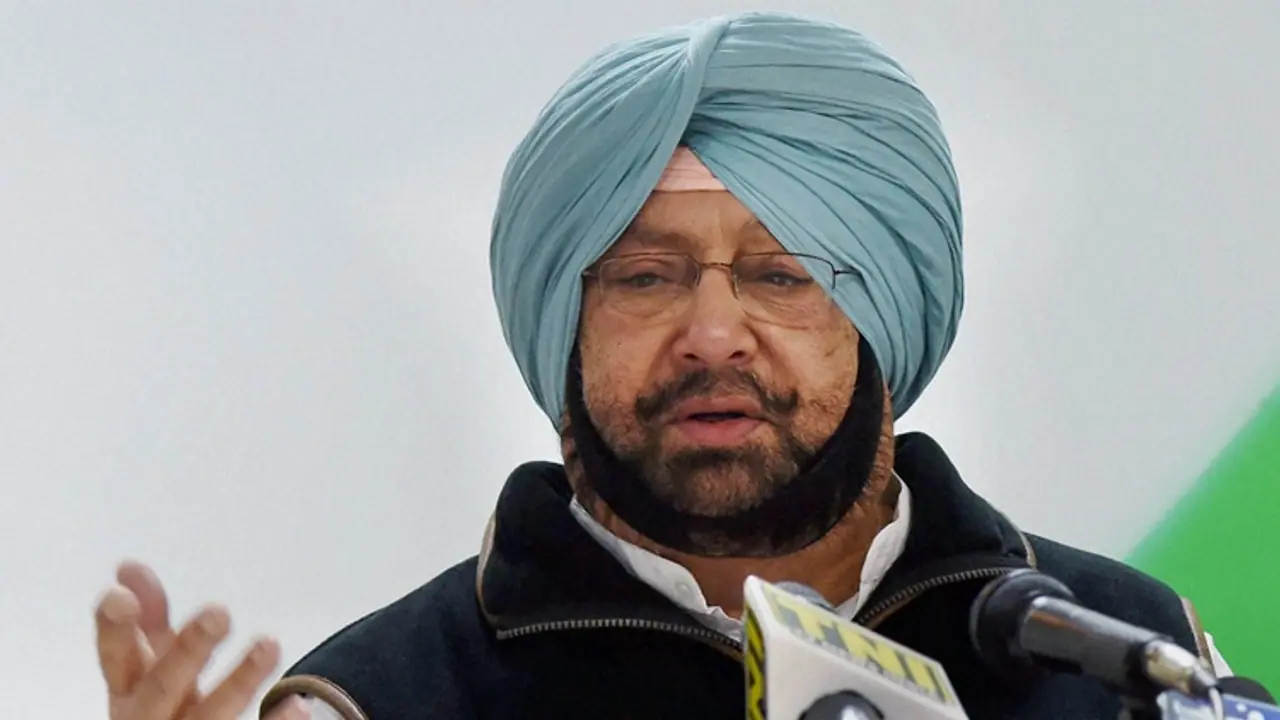Chief minister of Punjab Amarinder Singh had sworn by the holy Gutka Sahib to wipe out drugs within four weeks of coming to power
Congress government in Punjab is recieving flak after failing to control the drug menace in the state. According to reports there has been a surge in the deaths of addicts allegedly due to drug overdose or the use of adulterated heroin.
Previously, Chief minister of Punjab Amarinder Singh had sworn by the holy Gutka Sahib to wipe out drugs from the state within four weeks of coming to power. However, the surge comes at a time when the 16-month government is implementing an ambitious mission called 'Tandrust Punjab', which aims at improving the people's physical and mental health by taking care of the state's air, water and food quality.
The state Cabinet recently recommended to the Centre to allow death penalty for drug peddlers and smugglers, a move some activists dubbed a "knee-jerk" reaction.Moreover, the government also announced mandatory dope tests for all government employees.
This decison came following immense pressure from social activists and the opposition parties to control the drug menace. Aam Aadmi Party even dared the chief minister to take the test himself.
However, Shiromani Akali Dal, whose previous coalition government was accused of patronizing the drug mafia, has urged people to rise above political affiliations and fight a "comprehensive war against a common enemy.
According to reports, about 20 people died last month in Punjab because of drug overdose although the state health department has confirmed only two such deaths.
Some videos purportedly showing addicts dying of drug overdose have also surfaced on social media, adding to the pressure on Chief Minister Amarinder Singh.
But the state government claims it is acting effectively against the problem.
A special task force formed by Amarinder Singh soon after coming to power claimed to have choked the supply of drugs, especially heroin, to the state.
It is argued that it is this shortage that has forced addicts to consume adulterated drugs, which was leading to the deaths.
"The intensive action plan unfolded and executed by us over a year has resulted in the arrest of 18,977 drug peddlers and the treatment of more than two lakh drug victims," Amarinder Singh has said.
But the opposition parties blame the nexus between the police and drug peddlers for the problem and accuse the state government of failing to deal with it.
"The investigation into the recent drugs-related deaths should be handed over to a high court-monitored CBI team so that a fair and proper inquiry is conducted," said an AAP leader.
A study by the premier medical institute PGIMER reported last September that an estimated 2.70 lakh people in Punjab are addicted to drugs like include opium, heroin, poppy husk and synthetic drugs.
R S Ghuman, Professor of Economics at the Centre for Research in Rural and Industrial Development (CRRID), said the deceleration of the economy and unemployment were the main factors driving the youth to drugs.
Ghuman, who is carrying out a study on drug abuse in northwest India, stressed on smashing the "nexus" between the police and drug peddlers at the village level.
The problem cannot be addressed unless the youths are gainfully employed and a serious effort made to boost economic growth, he said.
Noted economist and Padma Bhushan awardee Sardara Singh Johal has asked youths to form groups to stop the supply of drugs into their villages, saying the state government could not do it alone.
"Sober youths should stand like a wall in their villages and prevent drug suppliers from selling any sort of intoxicant," said Johal who supported a campaign called 'Black Week against Chitta (drugs)'.
Punjab government has claimed to have arrested 18,977 drug peddlers and registered 16,305 cases from March 16, 2017 to June 24, 2018.
Seizures during this period amounted to 378 kg heroin, 117 kg charas and 14 kg smack, along with varying quantities of other drugs, officials said.
The government has also constituted a special working group to monitor on a day-to-day basis the action being taken to check drug abuse.
Punjab has over 130 drug de-addiction centres and around 100 rehabilitation centres.
An Outpatient Opioid Assisted Treatment (OOAT) programme was launched by the health department last year to provide outdoor healthcare to addicts.
So far, over 8,000 patients have registered and are being treated. The total footfall at OOAT clinics has been recorded at 2,74,938, a health department official said.
Death penalty, however, will not work, according to city-based human rights lawyer Navkiran Singh.
"Death penalty is no solution to combat the drug problem, he said, calling it a mere knee-jerk reaction and reminding that government had not even called an all-party meeting on drug abuse in the state.
With Imputs from PTI
